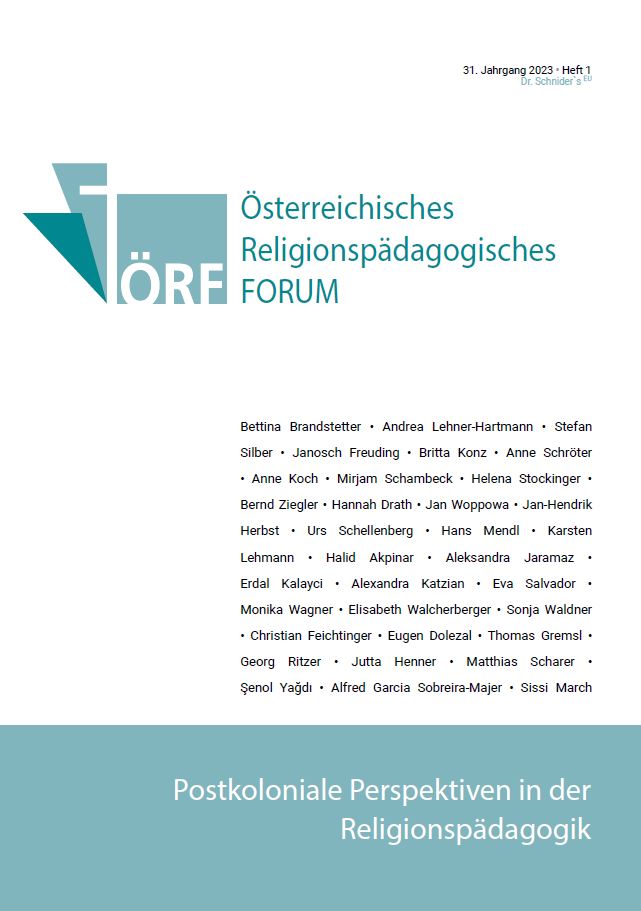The practical benefit of postcolonial theories
Potentials and limits of a ‘postcolonial lens’ for the analysis and the teaching of religious education
DOI:
https://doi.org/10.25364/10.31:2023.1.9Keywords:
postcolonial theories, analysis of teaching conditions, postcolonial exegesis, analysis of religious textbooksAbstract
This article presents the potentials and limitations of a ‘postcolonial lens’. On the one hand, three teaching potentials of postcolonial theories are shown: These theories contribute to a more adequate diagnosis of the socio-political conditions of religious education, to a didactic specification of learning contents and to an appropriate design of learning methods. On the other hand, two difficulties in reference to postcolonial theories are mentioned: the tendency to reify cultural categories in teaching and to strengthen processes of particularization. Finally, some perspectives for future research are given.
Downloads
Published
2023-05-15
How to Cite
Herbst, J.-H. (2023) “The practical benefit of postcolonial theories: Potentials and limits of a ‘postcolonial lens’ for the analysis and the teaching of religious education”, Austrian Journal of Religious Education, 31(1), pp. 150–165. doi: 10.25364/10.31:2023.1.9.
Issue
Section
Article - topic oriented

